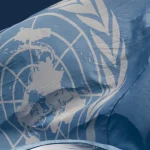Climate finance is not aid, as sometimes misunderstood. It’s restitution, for the injustice of climate change – caused by the North, but with impacts in the South, not just environmentally but in terms of development and economic growth.
That’s why climate finance is needed – to help poor countries deal with climate change, which they have done nothing to cause.
Financial support is an essential element in ensuring that poor countries make a successful transition to low carbon development while adapting to the growing impacts of climate change. To ensure that the poorest people are supported, who have contributed least to the climate problem but are already at the receiving end of some of the worse impacts, the EU must fulfill its commitments towards them.
Unkept Promises
In 2009 at the climate talks in Copenhagen, developed countries, including those in the European Union, committed to mobilising new and additional (which means on top of existing aid commitments (0.7% of GNI) and other investments flows to the global south) funds to increase overall funding to US$100 billion by 2020, known as Long Term Finance. So far developing countries have seen none or very little of this money. Our aim is to push richer nations to keep their promises and make rapid progress towards implementation of that goal.
What Ministers need to do
We are calling for ministers responsible for treasuries, finance, development and environment to:
1. Attend the UN Climate Negotiations (COP19) in Warsaw with a clear mandate to negotiate international climate finance and put money on the table.
2. Ensure that at least 50% of the public finance they provide is dedicated to developing countries’ adaptation needs.
3. EU ministers should commit an amount of climate finance for the period 2013-2015 that is comparable in scope and scale at the upcoming ECOFIN meeting in October.
4. EU ministers should formally declare through official documents (i.e. Council conclusions) that the EU will phase out and redirect subsidies away from fossil fuels.
In order for these promises to be kept, the responsible actors must thoroughly assess the implementation of these funds, look at various public and innovative sources (such at revenues raised from the EU ETS scheme, the Financial Transaction Tax, redirecting of Fossil Fuel Subsidies and carbon pricing of maritime and aviation transport) and ensure that developed countries are complying with the agreements made. Climate finance must be properly distributed to meet the case-by-case needs of affected communities, in both short-term and long-term. It must be monitored and verified to ensure that it fulfills its role and stakeholders should ensure that long-term development is at the heart of climate finance.
We need to ensure that the money is not diverted from other pots to climate finance, taking money from already stretched aid budgets that pay for schools, hospitals, agricultural programs. This practice would also enable developed countries to tell developing countries they have provided climate finance while actually double counting and double reporting the funds.



